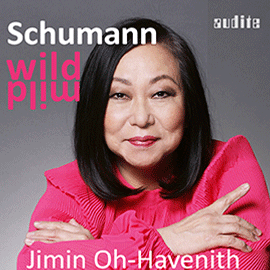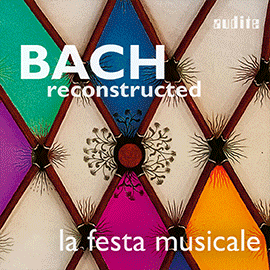Nach seinem Album Elements of Bach setzt Johannes Krahl seine Reise mit Johann Sebastian Bach fort – diesmal mit dem Blick auf die Zeitgenossen des Thomaskantors, vor allem Antonio Vivaldi.
J.S. Bach war kein großer Reisender, hatte weder Zeit noch Möglichkeiten. Dennoch war er bestens über die musikalischen Strömungen in Europa informiert, studierte eifrig Partiturabschriften und arbeitete einige davon zu Orgelkonzerten um.
Johannes Krahl zeigt sich hier nicht bloß als interessierter Beobachter des Dialogs zwischen Bach und seinen Zeitgenossen, er mischt sich ein, bringt seine Argumente aus heutiger Sicht in die Diskussion. So entsteht ein lebendiges Musizieren, strahlend leicht, mit vielen raffinierten Klangfarben. Bei Johannes Krahl gibt es keinen Stillstand in der Musik, die ständig pulsiert, dabei nie klanglich überfrachtet wirkt. Mit viel Feingefühl deckt der Organist die vielen Strukturen in Rhythmik, Motivik und Klang auf, Strukturen, die sich wie kleine Äderchen zu einem vitalen, inspirierenden Klangkörper formen.
Following his album Elements of Bach, Johannes Krahl continues his journey with Johann Sebastian Bach – this time with a focus on the Thomaskantor’s contemporaries, above all Antonio Vivaldi.
J.S. Bach was not a great traveler, he had neither time nor opportunities. Nevertheless, he was well informed about the musical trends in Europe, eagerly studied copies of scores and reworked some of them into organ concertos.
Johannes Krahl not only shows himself to be an interested observer of the dialog between Bach and his contemporaries, he also intervenes and brings his arguments into the discussion from today’s perspective. The result is lively music-making, radiantly light, with many refined tonal colors. With Johannes Krahl, there is no stagnation in the music, which is constantly pulsating, yet never overloaded with sound. With great sensitivity, the organist reveals the many structures in rhythm, motif and sound, structures that form like tiny veins into a vital, inspiring body of sound.























